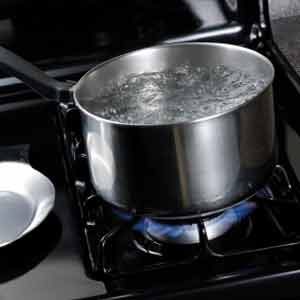
1. Prevent Boil-overs
When cooking, use pots and pans that are deep enough to prevent boil-overs and splattering. Minimizing spillage will reduce cleanup work and help prolong the life of your stove.
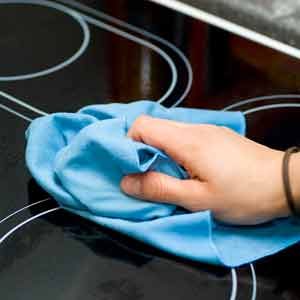
2. Clean Spills Quickly
Cooking spills are inevitable. The good news is you can whisk away virtually any spill with a damp sponge or paper towel if you get it while it’s still warm. So get in the habit of wiping down your stovetop after every use-your stove will gleam like new for decades, and you’ll save yourself plenty of scrubbing.
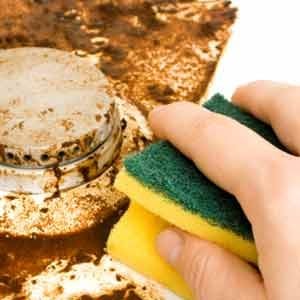
3. Use Elbow Grease, Not Abrasives
Of course, human nature will prevail, and once in a while, you won’t wipe up stovetop spills right away. If a spill has had a chance to dry out and cook for a while, use a sponge along with a solution of dishwashing liquid and warm water or a 50-50 solution of vinegar and warm water. The longer you wait, the more elbow grease you’ll need to invest. An all-purpose cleaner is fine to use, but whatever you do, don’t give in to the temptation to grab that can of abrasive powder-you’ll create tiny scratches in the surface. The next spill will grip the scratches and be even harder to remove.
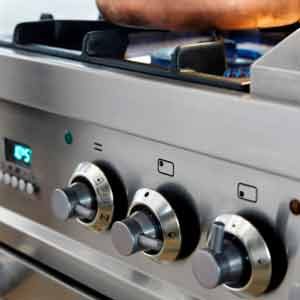
4. Clean the Stove Parts Regularly
In addition to an after-use wipe down, periodically give your stove parts a more extensive cleaning. Wash the burner drip plates and other removable accessories (but not electric burner coils) either by hand in the sink or by running them with your next dishwasher load (if the owner’s manual for your stove says they are dishwasher safe). Carefully remove control-panel knobs (usually by pulling straight out) and clean around the knobs’ bases. Wash the knobs in hot, soapy water, rinse, and dry before replacing them.
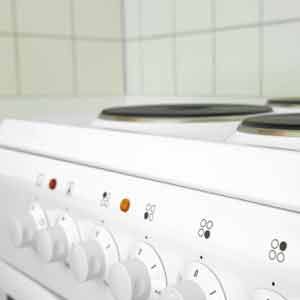
5. Clean Under the Hood
If your stove doesn’t have a sealed cooktop, food and grease will fall down under the burners. It’s easy to forget about this out-of-view debris, so remember to lift the cooktop to clean beneath it. Follow the owner’s manual instructions for lifting the top without damaging it. Then clean the grease buildup with a sponge and warm, soapy water or a 50-50 solution of vinegar and warm water. Rinse with clean water and a sponge.
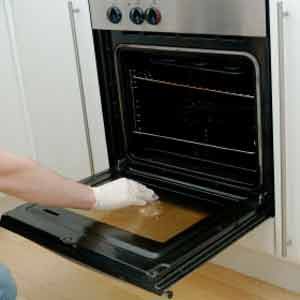
6. Clean that Grimy Oven Window
Oven windows tend to become so dirty we can’t even tell what’s in there, let alone whether it’s done cooking. And when you think about it, a dirty window actually reduces the efficiency of your stove because you keep opening the door to check the food. To clean the window, rub it with a damp cloth dipped in baking soda. If stuff is really baked on, wipe the window with ammonia, let it stand for 30 minutes, then scrape it off a plastic ice scraper. Don’t use a metal tool.
More in Home and Garden:
Here’s your chance to get more for your dollar! Making your household items last longer is a piece of cake…when you know the secrets. Now instead of replacing hundreds of items around your home, find out the amazing low-cost (or no-cost) tips for making your possessions last, and last, and last! Buy the book today at the readersdigest.ca online store.